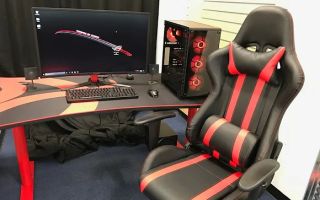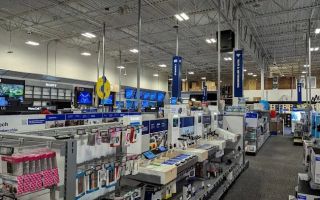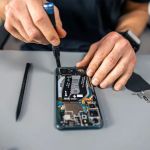How to Boot from USB on Dell Laptop: A Step-by-Step Guide
- 1. Why Booting from USB Can Be Useful
- 2. Preparing Your Dell Laptop for USB Boot
- 3. Different Methods for Booting from USB on Dell Laptops
- 4. Troubleshooting Common Issues with USB Booting
- 5. Best USB Boot Tools for Dell Laptops
- 6. Final Thoughts on Booting from USB
1. Why Booting from USB Can Be Useful
Booting from USB is a powerful and flexible tool that allows you to install or troubleshoot operating systems without needing to boot from your laptop's internal hard drive. Whether you're trying to install a fresh version of Windows, run diagnostics, or use a live Linux operating system, booting from USB on your Dell laptop can provide solutions for a variety of scenarios.
For those who are new to the concept, booting from USB might seem daunting, but once you understand the process, it opens up a world of possibilities, especially if you're dealing with system failures or looking to upgrade your operating system. In this article, we’ll explain the steps on how to boot from USB on Dell laptops, troubleshoot common issues, and suggest tools that make this process easier.
2. Preparing Your Dell Laptop for USB Boot
Before you can boot your Dell laptop from a USB drive, there are a few key preparations to ensure the process goes smoothly. Here’s what you need to do:

Action Computers Inc. -- Denver Location
2890 S Colorado Blvd F, Denver, CO 80222, USA
Step 1: Create a Bootable USB Drive
The first step is to create a bootable USB drive. You’ll need a USB stick with at least 8GB of storage and the necessary software to make it bootable. For Windows, you can use the Windows Media Creation Tool, which is available for free from Microsoft’s website. For Linux, you can use tools like Rufus or Etcher to create a bootable drive.
Step 2: Back Up Your Data
Before you make any changes to your system, it's important to back up your files to avoid data loss. Booting from a USB may involve system resets or reinstallations, so it's always wise to ensure your important files are safe first.
Step 3: Access BIOS Settings on Your Dell Laptop
To boot from USB on a Dell laptop, you need to access the BIOS settings. To do this, restart your laptop and press the F12 key (or the F2 key in some models) as soon as the Dell logo appears. This will open the Boot Menu or BIOS setup screen, where you can adjust the boot sequence.
3. Different Methods for Booting from USB on Dell Laptops
There are several methods for booting from a USB on your Dell laptop, and choosing the right one depends on your specific needs. Let’s go through the common methods:
Method 1: Boot Menu
For a quick and simple way to boot from USB, the Boot Menu is the best option. When you press F12 during startup, you'll see a list of boot devices. Select your USB drive from the list, and your laptop will boot from it. This method doesn’t require permanent changes to your BIOS settings.
Method 2: Change Boot Order in BIOS
If you plan on booting from USB frequently, you may want to change the boot order in BIOS. To do this, access the BIOS by pressing F2 during startup, navigate to the Boot Sequence section, and prioritize the USB device over the internal hard drive. Save the changes and exit. Now, your laptop will automatically boot from USB whenever it’s connected.
Method 3: Secure Boot and UEFI Settings
Some newer Dell laptops with UEFI firmware and Secure Boot enabled may require additional settings. If your laptop doesn’t boot from USB, you may need to disable Secure Boot in the BIOS settings. This ensures that the laptop will boot from unsigned or non-UEFI bootable drives, such as certain Linux distributions or older versions of Windows.
4. Troubleshooting Common Issues with USB Booting
If you’re having trouble booting from USB on your Dell laptop, here are a few common issues and their solutions:
Issue 1: USB Drive Not Detected
If your USB drive isn’t showing up in the boot menu, ensure that it’s properly formatted as a bootable device. Double-check that the USB drive is inserted into a working USB port, and try a different port if necessary. You can also try recreating the bootable drive using different software.
Issue 2: Secure Boot Preventing Booting
If you’re unable to boot from USB due to Secure Boot, disable this option in the BIOS settings. This may require some tweaking in the BIOS to enable legacy boot modes or to turn off the UEFI boot configuration.
Issue 3: Boot Order Not Saving
Sometimes, changes made to the boot order may not save after restarting your laptop. Ensure that you are correctly saving the changes before exiting the BIOS. If the problem persists, check for a BIOS update from Dell’s support website.
5. Best USB Boot Tools for Dell Laptops
To make booting from USB easier, consider using these highly recommended tools:
Rufus
Rufus is a popular and reliable tool for creating bootable USB drives. It supports a wide variety of bootable file systems and is simple to use. Whether you're installing Windows or a Linux distribution, Rufus is a great tool to help you get started.
Windows Media Creation Tool
For Windows users, the Windows Media Creation Tool is an official tool provided by Microsoft. It helps you create a bootable USB drive to install or repair Windows operating systems quickly and efficiently.
Etcher
Etcher is another great tool for creating bootable USB drives, especially for those who want a simple interface. It’s perfect for creating live Linux USB drives and works seamlessly across Windows, macOS, and Linux.
6. Final Thoughts on Booting from USB
Booting from USB on your Dell laptop is a powerful skill that can help you solve system issues, install new operating systems, or even run diagnostic tools. With the right preparation and tools, you can easily boot from USB and get the most out of your device.
If you're still facing issues with booting from USB, or if you're looking to explore other advanced options, consider checking out Dell’s support page for more detailed guides. Also, make sure your USB drive is properly set up, and don't hesitate to use the tools and steps mentioned in this article.
Looking for more information or tools to enhance your experience with USB booting? Visit Ninja Stik for top-rated products and advice on optimizing your device!




























